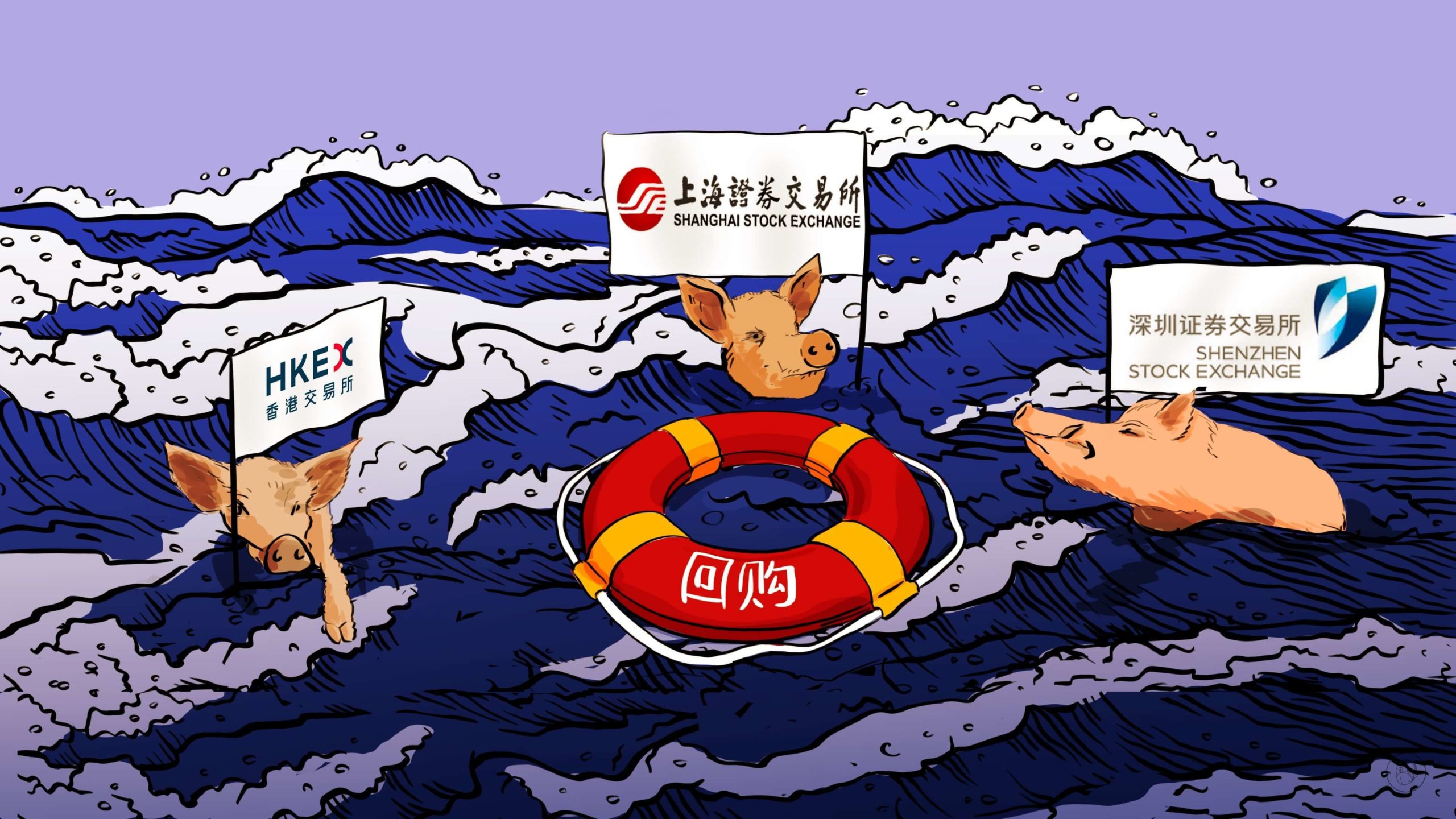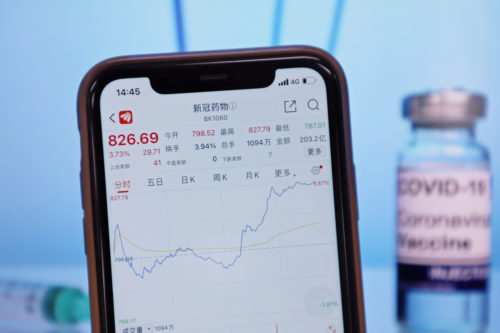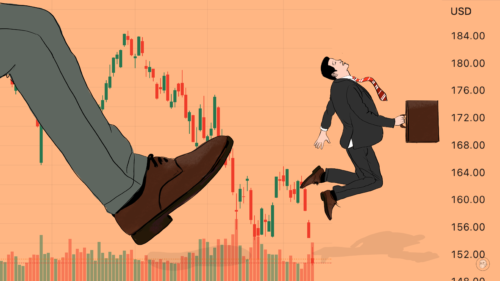The government wants listed companies to buy back shares, but that might not stop the market carnage
Chinese regulators are encouraging (and enabling) companies to buy back their own stock to stabilize the country’s volatile markets. But will it work?

On October 21, Zhejiang Light and Textile Industrial City Group 浙江中国轻纺城集团 announced that the company would buy back as many as 14.66 million of its own shares (around 10% of total company equity) worth up to 806 million yuan ($111.23 million) for the purposes of employee stock ownership distribution and equity incentives. The company also stated that it is carrying out the share buyback to respond actively to the policy orientation of the government to stabilize the capital markets. For the first three quarters of this year, the company reported a profit forecast of up to 750 million yuan, a year-on-year increase of 184.66%.
Textile Industrial City Group is one of many A-share companies that have implemented share buyback plans this year:
- From October 14 to 20, a total of 76 A-share companies issued share repurchase announcements, including Great Wall Motor 长城汽车 (for up to 40 million shares for as much as 1.8 billion yuan/$248.41 million) and Focus Media 分众传媒 (for shares worth up to 800 million yuan/$110.40 million).
- According to one calculation, so far this year, there have been 1,510 buyback announcements on the A-share market involving 1,100 listed companies, with a total repurchase amount of 158.9 billion yuan ($21.92 billion), an increase of 85.5% year-on-year.
- The industries featuring the most buybacks are household appliances, pharmaceuticals, and electronics, and A-share repurchases have this year been mainly concentrated in state-owned enterprises and listed companies with positive financials (such as Textile Industrial City Group).
Several more companies have announced intentions of implementing buyback schemes soon, including Midea 美的集团, Haier 海尔, and Zoomlion 中联重科.
It’s also happening in Hong Kong
A similar situation is playing out in Hong Kong: The cumulative repurchase amount of Hong Kong–listed companies this year has reached HK$75.36 billion ($9.59 billion), a record high, involving 202 listed companies. On October 19 alone, more than 40 Hong Kong–listed companies issued repurchase announcements, including WuXi Biologics 药明生物 and JD Health 京东健康. So far this year, Tencent 腾讯 has repurchased its own stock worth HK$24.50 billion ($3.12 billion).
Turbulent markets
The backdrop to the share buyback trend is the widespread carnage on the markets: From the beginning of this year to October 20, the Shanghai Composite Index dropped by 16.61%, the Shenzhen Composite Index by 22.07%, and the Hang Seng Index by 30.42%. On October 14, the China Securities Regulatory Commission revised the regulations governing share repurchases of listed companies and shares held by company executives. This opened the floodgates of share repurchasing: A week later, by October 21, more than 120 listed companies had issued repurchase announcements.
Among other things, the new regulations shortened the period after first listing during which a company is not allowed to buy back its own shares, and reduced the time limit for company executives to trade company stocks and to increase their holdings of company shares. As a result, in the second half of October, various company executives announced plans to increase their holdings of company stock. For example, the chairperson of Sichuan Yahua Industrial 四川雅化集团, a lithium mining company, plans to buy back stock of up to 300 million yuan ($41.40 million).
Are we at rock bottom?
The main purpose of allowing listed companies to repurchase their stock is to stabilize stock prices. According to one analyst, historically speaking, such loosenings of the repurchasing policy during periods of market downturn have corresponded to the low point of the downturn, and are intended as positive signals of stability maintenance.
Whether the signal will actually address the slump in the capital markets, however, is another story: The Hang Seng China Enterprises Index is down a further 7.3% today, and by 37.9% so far this year. The Hang Seng Index is down a further 6.3% today, and by over 35% so far this year, as are ADRs in the U.S. and the MSCI China Index (including A-shares, H-shares, B-shares, and foreign listings).






